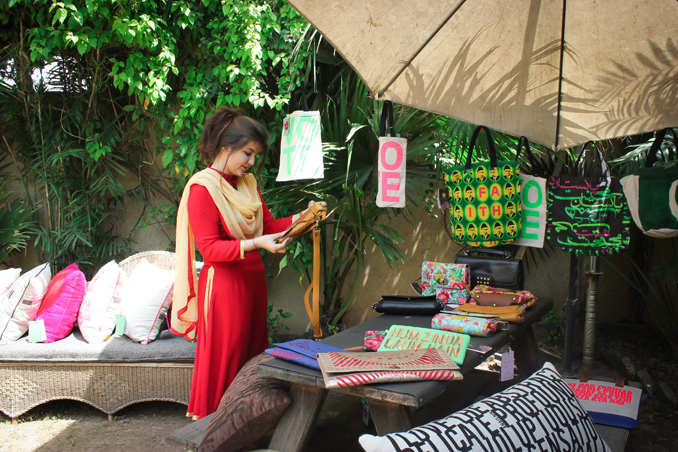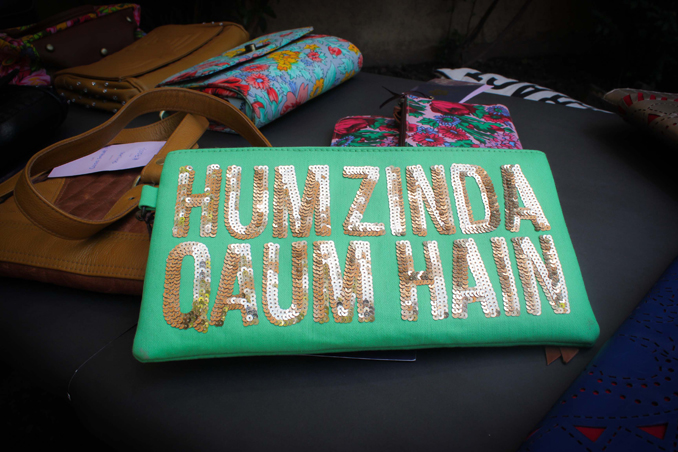Written by: Amna Javed
Posted on: April 12, 2015 | 
Weekend Art & Craft Festival at Nomad
Since its inception in 1984, Nomad has worked to address social issues in the empowerment of women and youth hailing from less privileged communities from all over Pakistan. Keeping up with the tradition, the display at Nomad included Armaghan shawls. Developed in collaboration with women hailing from socio-economically constrained communities and young designers, under the banner of economic empowerment for Swat’s shawl industry, these wraps have been made from natural silks and are adorned with fine hand-embroidery. “Their shawls were not selling in Swat, so we bought about 500 shawls from there and then set up a unit where people, who had been trained at Nomad, could come and work with us,” said Nageen Hayat, the founder-director at Nomad. The festival also showcased traditional ‘Ajrak’ jackets, shirts and pants.

In addition to that, the festival featured Nomad’s partners based in Delhi, called ‘Wandering Silks’. “This is our project on peace exchange through culture and crafts,” added Hayat. Wandering Silks also works in collaboration with various communities in India, to produce crafts such as scarves and wraps, as well as jewellery pieces from left over portions of cloth. The scarves have been embroidered with fine ‘Kantha’ stitching, which is the traditional Bengali embroidery.
Maheen Hussain, an emerging designer, had displayed an exceedingly contemporary and funky collection comprising of clutches and handbags for girls. Lastly, the festival showcased Usman Khalid’s range of ‘Juju Ceramics’. Khalid’s collection included trays, decorative pieces and water coolers that had been festooned with geometric patterns.

The idea behind the Art and Craft Festival was to highlight the traditional techniques of stitching and dying, preserve them and pass them on to future generations. With the onset of commercialism, the traditional art and craft industry in Pakistan has fleetingly declined.
The traditional art and craft in Pakistan transcend boundaries; it is an amalgamation and infusion of various cultures and influences from the region, from Mughal aesthetic to Islamic art form, which is why it is important to preserve this unique identity. While countries across the globe take pride in flaunting their culture, Pakistan does not give its unique art and craft industry the importance that it deserves. Unfortunately, the traditional industry is weakening and talented artisans are being put out of jobs, as there is no support or protection for their skills.
You may also like: